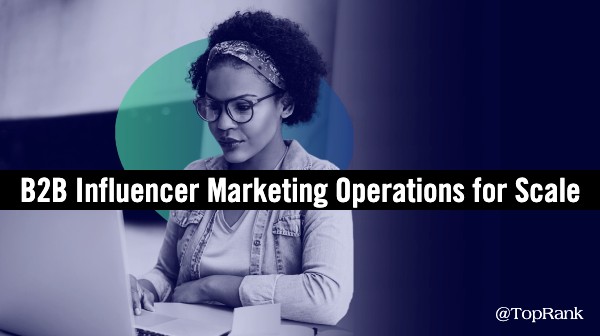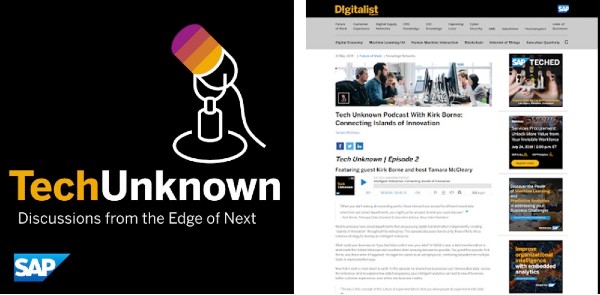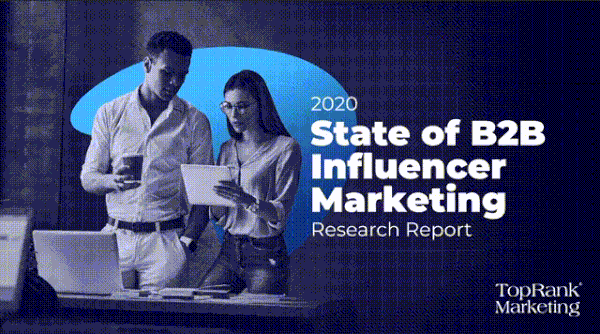
As a relationship driven business, influencer marketing for B2B companies can be resource intensive and time consuming. To scale while maintaining quality, creating processes and using software are as essential for influencer identification as it is for managing ongoing communications and performance reporting.
In our research for the State of B2B Influencer Marketing Research Report, we found B2B marketers that document an influencer marketing strategy and engagement approach, define processes, use software and elevate their internal operational expertise are much better suited to scale a high quality and successful influencer marketing program.
This post will dig further into the findings from the State of B2B Influencer Marketing concerning influencer marketing operations on everything from top challenges to best practices and process to software.
The Problem with B2B Influencer Marketing
With inputs from hundreds of B2B marketers, we found that 39% stated their top challenge with influencer marketing was that the process was too manual. However, to address that challenge, 50% of marketers that identified as the most successful with influencer marketing use software compared to only 25% of less successful influencer marketers.
50% of the most successful influencer marketers use software to identify influencers #B2BIMReport
For quality, efficiency and effectiveness, software is essential for scaling an influencer marketing program. The vast amounts of data and analysis needed to predict which influencers are a match go beyond the personal referrals that so many B2B marketers still rely on to pick their influencers. As we’ve learned over the past 9 years and many B2B client engagements, process and technology are essential for finding, qualifying and activating the right influencers.
B2B Influencer Operations Drive Influence at Scale
For the most successful B2B influencer marketers, our research found that having a documented strategy (68%) is one of the key differentiators over less successful marketers (25%). As with all types of B2B marketing, solid plans provide the framework for effective and scalable implementation through process, best practices and technology.
So how are B2B marketers using technology to help with influencer marketing programs?
- Identify influencers 76%
- Monitor influencer social network activity 66%
- Qualify influencers 64%
- Measure and report on campaign/program results 63%
- Manage influencer campaigns/program 43%
- Manage and nurture influencer relationships 41%
- Activate influencers 35%
The most successful marketers use technology and the impact is clear: only 13% rate difficulty achieving results as a top challenge vs. 30% of marketers overall.
Operations, Process and Technology are Key to Influencer Marketing Success
Influencer marketing is a hot topic these days because in-person conferences, events, and meetings are all in transition. But as a brand, how do you find the right influencers for your program?
The operations behind Influencer Marketing is the less glamorous yet essential side of relational business. You need to come up with a strategy, plan of action, and a process. All incorporate various tools and techniques and will give you the knowledge and skills to run a successful influencer marketing program. @ursularingham

Ursula Ringham, Global Head of Influencer Marketing at SAP*
How SAP’s B2B Influencer Podcast was Operationalized for Multiple Objectives

Successful influencer marketing is a journey. The most successful brands create a hypothesis for their approach, test and then develop a standardized process in order to create a scalable operation.
Challenged to create a single influential marketing resource to reach multiple business objectives, SAP needed to implement a process that would enable them to create a content destination to satisfy the interests of business leaders within many verticals and topics around technology.
The solution included creating a podcast featuring an influencer host and a combination of industry experts and internal executives. To make the solution scalable, a process was developed and aided by multiple tools to identify, engage and activate influencers, record interviews, produce podcast episodes, publish and promote the podcasts.
The process made it easier for influencers to contribute, resulting in more influencers participating more efficiently, allowing expedited production and delivery of podcast episodes on-time and under budget.
Not only was this program efficiently created and capable of serving multiple audiences, the marketing performance was significant:
- 128M in potential reach from influencer shares
- 13M+ estimated impressions
- 66% increase in podcast downloads over previous season
Get more details on this B2B influencer marketing case study from SAP here.
Behind B2B Influence Success is an Effective Operation
As I’ve said many times before, Influencer Marketing can impact B2B marketing efforts across the customer lifecycle from creating greater brand awareness to lead generation to inspiring advocacy.
For most B2B companies, influencer marketing is not a turn-key effort. 60% of marketers state they do not have the right skills in-house or the knowledge to execute and influencer marketing program. Our research found that many operational aspects of influencer marketing are handled by outside resources such as specialist agencies including:
- Identifying influencers 79%
- Managing influencer relationships 76%
- Developing the strategy 71%
- Measuring effectiveness 66%
- Integrating with other marketing efforts 63%
- Implementing campaigns 60%
- Managing influencer marketing technology 44%
B2B brands that want to forego the growing pains of figuring out the right strategy, process and technology for influencer marketing can partner with agencies that specialize in the practice (like TopRank Marketing).
There are also a growing number of B2B marketers that are experienced with influencer marketing. 32% of marketers in our survey had worked with influencers for 2-3 years and 25% over 5 years. A highlight of best practices when working with influencers includes:
- Top influencer activities: Collaborate on content (87%) and promote content (82%)
- Top content types: Blog posts (83%) and recorded video (67%)
- Ways to show influencer appreciation: Public recognition as a brand influencer (51%) and special access (50%)
- How agencies help B2B brands: Identify influencers (79%) and manage influencers (76%)
- Spending on influencer marketing: 40% spend less than 50k, and 19% spend $50-100k
- Top B2B influencer marketing platforms: BuzzSumo 18%, Onalytica (17%), Traackr (16%)
Influencer Marketing Process Drives Effectiveness and Scale
For me having an end-to-end process is key to not only be effective but also to scale – from clear objectives to identification, engagement tactics, management, budgeting, reporting and not to forget feedback to close the loop. @JanineWegner

Janine Wegner, Global Thought Leadership Program & Activation Manager at Dell Technologies*
Key Considerations for B2B Marketers to Optimize Influencer Marketing Operations
- Marketers that document an influencer strategy and engagement approach, define processes, use software and elevate their internal operational expertise are better suited to create successful influencer marketing programs.
- Influencer Marketing can deliver substantial results for basic to sophisticated marketing campaigns like the SAP Tech Unknown podcast serving multiple audiences and stakeholders. But it is the less glamorous yet essential side of operations where success with B2B influencer marketing is born.
- Only half of B2B marketers include a plan for influencer activation in their strategy and 41% are not using any technology. Many of the challenges marketers face with influencer marketing can be solved with process, technology and outside expertise.

Get more insights into where influence can fit in your mix with the State of B2B Influencer Marketing Report.
*SAP and Dell Technologies are clients of TopRank Marketing


